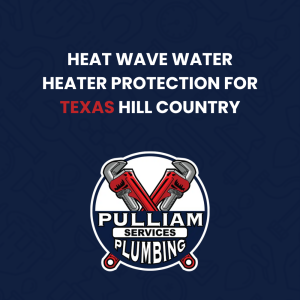The use of energy-efficient appliances has become an increasingly popular trend in recent years. Tankless water heaters are one such option that has been gaining traction in Boerne and Fair Oaks, Texas, thanks to their energy-saving benefits, space-saving design, and ability to provide hot water on demand. With our expertise as the highest-rated plumbing company in the area, we have put together this comprehensive guide to help you make an informed decision about whether a tankless water heater is the right choice for your home.
Traditional storage tank heaters have dominated the market in the past, but as homeowners become more environmentally conscious and seek energy-efficient solutions, tankless water heaters have emerged as an attractive alternative. They offer numerous advantages, including reduced energy consumption, a virtually unlimited supply of hot water, and a smaller footprint when compared to their storage tank counterparts. Moreover, with incentives such as tax rebates and credits for energy-efficient appliances in effect, switching to a tankless water heater can be an even more appealing investment.
Our team of experts has evaluated the ins and outs of tankless water heater technology, exploring every aspect, from efficiency and performance to maintenance and durability.
1. Key Benefits of Tankless Water Heaters
Tankless water heaters offer numerous advantages over traditional storage-tank heaters, including the following:
- Energy Efficiency: By heating water only when it’s needed, tankless heaters can save up to 50% in energy costs compared to conventional models.
- Space Savings: Due to their compact size, tankless water heaters can be installed in tight spaces, making them ideal for homes with limited room.
- Longer Life Span: With proper maintenance, tankless units can last up to 20 years, compared with the 10-15-year lifespan of traditional storage tank heaters.
- On-Demand Hot Water: Tankless heaters provide hot water instantly, so you never have to worry about running out during long showers or when multiple appliances are in use.
These advantages make tankless water heaters a compelling option for those seeking an eco-friendly and cost-effective solution for their hot water needs.
2. Types of Tankless Water Heaters
There are two primary types of tankless water heaters to consider:
- Electric Tankless Water Heaters: These units use electric heating elements to heat water on demand. They are typically cheaper and easier to install, requiring no venting system, but offer lower flow rates compared to gas models.
- Gas Tankless Water Heaters: These heaters use either natural gas or propane to heat water and usually provide a higher flow rate than electric models. They require proper ventilation and are generally more expensive upfront but can offer greater energy savings in the long run.
Understanding the differences between these types of tankless water heaters is essential to ensure you select the best fit for your home and specific needs.
3. Factors to Consider When Choosing a Tankless Water Heater
Before investing in a tankless water heater, consider the following factors:
- Your Hot Water Requirements: Determine the flow rate (gallons per minute or GPM) required to meet your household’s hot water needs, considering the number of bathrooms, appliances, and individual usage patterns.
- Required Temperature Rise: Calculate the difference between your incoming groundwater temperature and your desired output temperature to determine the required temperature rise.
- Fuel Type: Choose between electric or gas-powered tankless water heaters based on availability, cost, and your home’s compatibility.
- Energy Efficiency: Compare Energy Factor (EF) ratings for different models, taking into account potential energy cost savings over the heater’s lifespan.
- Local Rebates and Incentives: Research federal or state tax credits and rebates that may be available for purchasing energy-efficient appliances.
By evaluating these factors, you can make a well-informed decision on the ideal tankless water heater for you and your family.
4. Installation Process and Requirements
Preparing for the installation of a tankless water heater involves several essential steps:
- Choose a Suitable Location: Select an appropriate installation site, considering factors such as fuel type, available space, and proximity to water lines.
- Ensure Compliance with Local Codes: Adhere to local building and safety codes by obtaining necessary permits and hiring a licensed professional for installation.
- Ventilation Requirements: For gas-powered models, ensure proper ventilation is in place to facilitate safe and efficient operation.
- Electrical and Plumbing Upgrades: Some homes may require upgrades to electrical or plumbing systems before installing a tankless water heater.
By thoroughly preparing for the installation process, you can ensure a smooth and successful transition to your new tankless water heater.
Conclusion
Tankless water heaters provide a reliable, eco-friendly, and cost-effective solution to your hot water needs. By harnessing the numerous benefits they offer and selecting the right model for your home, you can enjoy an endless supply of hot water while reducing energy costs and your environmental footprint.
Trust Pulliam Plumbing to guide you through the entire tankless water heater process, from selection to installation and beyond. With our tankless water heater repair services, we stand ready to help you make a confident and informed decision every step of the way.




